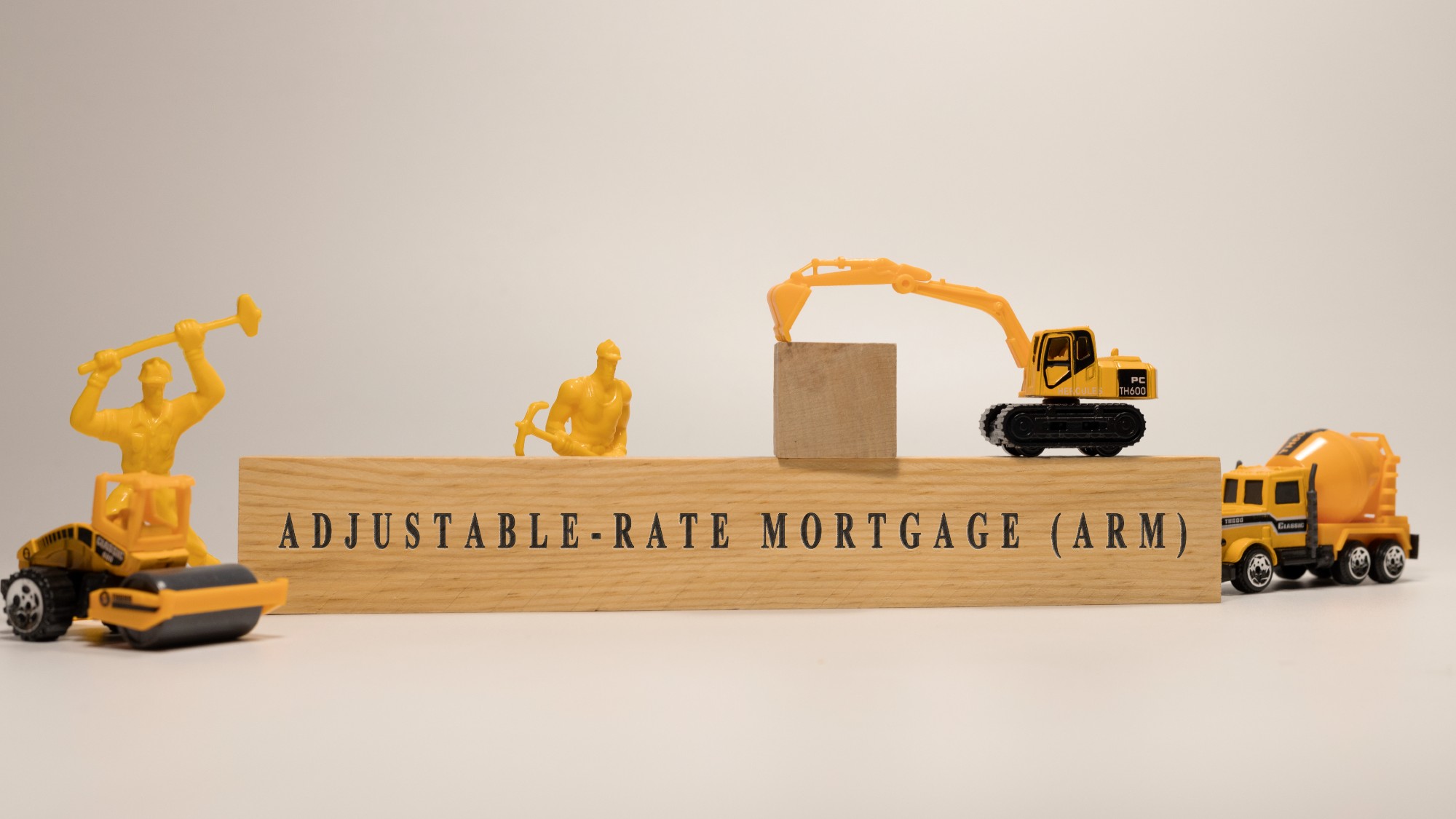How to avoid becoming a mortgage prisoner
Thousands of homeowners are stuck with expensive mortgages they can't escape

A free daily email with the biggest news stories of the day – and the best features from TheWeek.com
You are now subscribed
Your newsletter sign-up was successful
Thousands of mortgage prisoners, borrowers stuck with an unfavourable interest rate, are taking TSB to court over the interest rates it is charging borrowers.
Law firm Harcus Parker, which is bringing the case, claims mortgage borrowers were "left trapped" and paying "well over market interest rates", said the Financial Times, when their loans were transferred from collapsed lender Northern Rock to TSB amid the 2008 financial crisis.
Harcus Parker says these borrowers – whose mortgages were purchased through a loanbook called Whistletree – have become mortgage prisoners and should have been moved to TSB's lower standard variable rate (SVR).
The Week
Escape your echo chamber. Get the facts behind the news, plus analysis from multiple perspectives.

Sign up for The Week's Free Newsletters
From our morning news briefing to a weekly Good News Newsletter, get the best of The Week delivered directly to your inbox.
From our morning news briefing to a weekly Good News Newsletter, get the best of The Week delivered directly to your inbox.
The average claim is estimated to be worth £20,000 to £30,000.
TSB has strongly denied these claims, saying borrowers have been offered alternative deals.
The case highlights the plight of mortgage prisoners in the aftermath of the 2008 financial crisis and bank bail-outs that saw mortgages transferred from failed banks including Northern Rock and Bradford & Bingley to inactive lenders "who charged higher rates than traditional high-street lenders", said YourMoney.
Reforms to bank lending since the credit crunch have left some borrowers unable to switch to a new rate, added the financial website, "because they do not meet the affordability criteria" – making them mortgage prisoners.
A free daily email with the biggest news stories of the day – and the best features from TheWeek.com
Tens of thousands of homeowners are believed to be mortgage prisoners, mainly those who "bought or remortgaged before 2014", said MoneyHelper, and who received a mortgage prisoner letter from their provider before January 2020.
However, there may be some action that mortgage prisoners can take.
What is a mortgage prisoner?
A mortgage prisoner is someone "trapped in unfavourable mortgages with higher rates", explained Matthew Sparkes, assistant professor in sociology, on The Conversation.
People particularly affected are those who took out mortgages pre-2008 and before tougher lending criteria were introduced under the Mortgage Market Review in 2014, said YourMoney, "designed to encourage responsible lending".
This means that even if you passed an affordability test before 2014, added MoneyHelper, "you might not pass the test now", leaving homeowners trapped and "without the option of switching to a better deal".
You can also be classed as a mortgage prisoner if the amount owed on your mortgage is higher than the value of your property, putting you in negative equity, said NerdWallet, making it difficult, "if not impossible", to remortgage.
Why are mortgage prisoners still facing difficulty?
There could be around 200,000 mortgage prisoners in the UK, according to MoneySavingExpert.
Borrowers typically have mortgages with "closed book" firms that are no longer lending to new customers, added the financial website, and don't fit modern-day criteria.
Many opted for interest-only deals pre-2008, added Sparkes on The Conversation, but the financial crisis "hindered their capacity to remortgage, and caused their interest rates to skyrocket".
Their situation has been exacerbated by the Bank of England's recent interest rate hikes, added the news website. Most mortgage prisoners are on variable rates that were "immediately exposed" to the rises and have increased to above 7%, while may have low credit scores, "locking them into their mortgages".
What to do if you are a mortgage prisoner
New rules were introduced by the Financial Conduct Authority in 2019 to "remove regulatory barriers to switching".
The City watchdog introduced a modified affordability assessment that let lenders consider a borrower's payment history and reliability "instead of their income and spending", added NerdWallet. Inactive lenders can also offer borrowers the option of moving to an active lender within the same financial group "without an affordability assessment".
This option is "open to all", added MoneySavingExpert, but it is the lender's choice and many mortgage prisoners "will find they won't get it".
Speaking with a mortgage adviser can help "understand your options", said Rest Less, "and get a great deal on your mortgage".
Other options include seeing if your lender will let you "defer your payments for a short period of time, or extend your mortgage term", added the financial website, but remember "any support they offer you will go on your credit report, and may affect your ability to borrow in future".
Marc Shoffman is an NCTJ-qualified award-winning freelance journalist, specialising in business, property and personal finance. He has a BA in multimedia journalism from Bournemouth University and a master’s in financial journalism from City University, London. His career began at FT Business trade publication Financial Adviser, during the 2008 banking crash. In 2013, he moved to MailOnline’s personal finance section This is Money, where he covered topics ranging from mortgages and pensions to investments and even a bit of Bitcoin. Since going freelance in 2016, his work has appeared in MoneyWeek, The Times, The Mail on Sunday and on the i news site.
-
 Why are election experts taking Trump’s midterm threats seriously?
Why are election experts taking Trump’s midterm threats seriously?IN THE SPOTLIGHT As the president muses about polling place deployments and a centralized electoral system aimed at one-party control, lawmakers are taking this administration at its word
-
 ‘Restaurateurs have become millionaires’
‘Restaurateurs have become millionaires’Instant Opinion Opinion, comment and editorials of the day
-
 Earth is rapidly approaching a ‘hothouse’ trajectory of warming
Earth is rapidly approaching a ‘hothouse’ trajectory of warmingThe explainer It may become impossible to fix
-
 Six ways to boost your finances in 2026
Six ways to boost your finances in 2026The Explainer It’s not too late to make a new year’s resolution to finally get organised money-wise
-
 Could a part-and-part mortgage help you on to the property ladder?
Could a part-and-part mortgage help you on to the property ladder?The Explainer Combining repayment and interest-only mortgages could become more popular as part of a push towards more flexible lending
-
 Why it’s important to shop around for a mortgage and what to look for
Why it’s important to shop around for a mortgage and what to look forThe Explainer You can save big by comparing different mortgage offers
-
 What are portable mortgages and how do they work?
What are portable mortgages and how do they work?the explainer Homeowners can transfer their old rates to a new property in the UK and Canada. The Trump administration is considering making it possible in the US.
-
 What’s an adjustable-rate mortgage and what are the risks?
What’s an adjustable-rate mortgage and what are the risks?The Explainer Buyers are increasingly willing to take the gamble of a changing rate
-
 How will Fed rate cuts affect the housing market?
How will Fed rate cuts affect the housing market?the explainer An anticipated series of Federal Reserve cuts could impact mortgage rates
-
 What to do if you want to move but don't want to give up your low mortgage rate
What to do if you want to move but don't want to give up your low mortgage ratethe explainer 30-year mortgage rates are currently averaging 7% — and homeowners who secured rates closer to 3% during the pandemic are reluctant to sell their homes
-
 Is it worth getting an interest-only mortgage?
Is it worth getting an interest-only mortgage?The Explainer Your monthly payments may be cheaper but the full mortgage amount will need to be paid back eventually